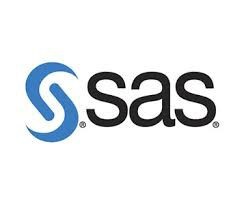
SAS Forms Agtech Business Unit, Expands Work with N.C. State U

Cary-based SAS, a global powerhouse in analytics software and services, is creating a new agricultural technology business unit to help farmers feed a growing global population that is projected to reach 10 billion people by 2050.
"We're at a critical point in human history where the threat of widespread hunger is more real than ever,” said Jim Goodnight, chief executive officer of SAS. “We have the opportunity to help farmers be more productive through the power of AI (artificial intelligence) and analytics and get more food from fields to tables around the world."
The new business unit will help growers and agribusiness leaders turn an exploding amount of farm and agricultural data into insights that inform food production, the company said in a news release. Recent estimates suggest that individual farms will generate more than 4 million data points each day by 2050.
SAS also said it is enhancing agricultural research and talent development through its support of the North Carolina Plant Sciences Initiative at North Carolina State University.
The company will embed full-time data scientists within the N.C. Plant Sciences Initiative to collaborate on research projects. The SAS Global Academic Program is also developing resources to help create the next wave of agricultural analytics experts.
"N.C. State is proud to have SAS partner in the N.C. Plant Sciences Initiative, a critical effort to keep the university at the forefront of plant science research and education, and to keep North Carolina agriculture competitive in a global market," said Chancellor Randy Woodson. "SAS' support will help secure NC State as a global leader in agriculture-related data and analytics that will help growers make data-driven decisions and more efficiently and effectively feed a growing world population."
The N.C. Plant Sciences Initiative convenes experts from academia, government and industry to drive cross-disciplinary research that increases crop yields, creates new varieties, extends growing seasons, enhances sustainability, and produces new and improved technology.
"The N.C. Plant Sciences Initiative will enhance plant breeding and genetics, improve farm production practices, and advance the development and integration of precision agriculture techniques and technologies like drones, sensors, artificial intelligence and machine learning," said College of Agriculture and Life Sciences Dean Richard Linton. "One of the initiative's biggest challenges is our ability to collect and translate large amounts of complex data into useful information that can help researchers and farmers make better informed, real-time decisions, he added. “This new partnership with SAS will be pivotal in helping us harness the power of data to improve agricultural outcomes and provide global consumers a higher quality, more accessible food supply."
Education and training are cornerstones of SAS’s recently announced $1 billion investment in AI research, education and services over three years. SAS collaborates with higher education institutions and offers free and low-cost software and programs to develop analytics talent.
Tapping a growing agricultural market
The use of AI and analytics in agriculture has great potential to improve plant health, soil productivity and crop yields, according to SAS. Real-time monitoring of animal sounds to detect distress, and new image-recognition technology help improve animal health. Connected farm devices enable automated decision support for growers but also require protection of farm data.
Growers are grappling with an ever-increasing amount of data. More and more, that data will come from Internet-of-things devices that collect information on topography, soil quality, weather and livestock feed as well as images from crops such as sweet potatoes. Drones and smart tractors are becoming more common and generate useful data on crop yield and land surveys.
To meet the needs of growers, agronomists and others that make up the broad agribusiness spectrum, SAS said it would establish its new agtech business unit with leaders from a variety of disciplines, both internally and externally, and through strategic partnerships like the one with N.C. State.
Deep roots at N.C. State
SAS was born at N.C. State in the 1970s, when researchers were tasked with analyzing vast amounts of crop yield data collected by projects funded by the U.S. Department of Agriculture. Previously, no computerized statistics program existed to analyze the findings.
A consortium of eight universities came together under a grant from the National Institutes of Health (NIH) to solve that problem. N.C. State faculty members Jim Goodnight and Jim Barr emerged as project leaders, and they were joined by Jane Helwig, a Statistics Department employee and John Sall, a graduate student and programmer.
They developed a software program, the Statistical Analysis System (SAS), that automated data analysis with power, speed and cost-efficiency.
The quartet left N.C. State and in 1976 co-founded SAS Institute, a private company devoted to the maintenance and further development of SAS. Over the next few years, SAS software was licensed by pharmaceutical companies, insurance companies and banks, as well as the academic community, helping these entities transform vast amounts of data into actionable intelligence.
Today SAS has customers in 147 countries, and its software is installed at more than 83,000 business, government and university sites.
The company has about 14,000 employees worldwide with about 5,545 at its global headquarters in Cary. SAS reported $3.27 billion in revenue in 2018.
